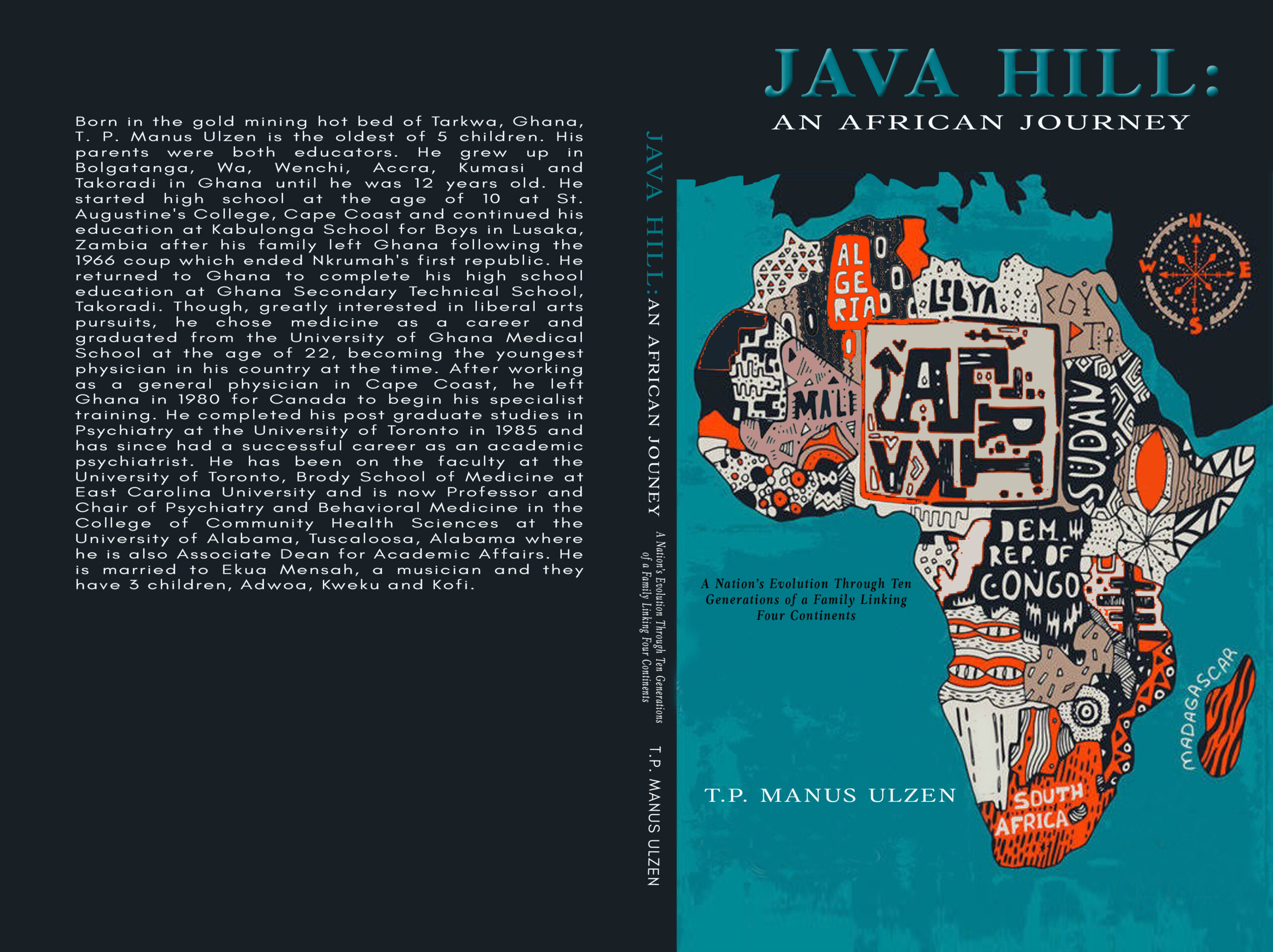
From Kirkus Indie, Kirkus Media LLC, 6411 Burleson Rd., Austin, TX 78744 2015
In the 1700s, the Dutch had secured outposts along the Gold Coast of western Africa in order to capitalize on the slave trade. Many slaves sold by the Ashanti Empire passed through Elmina, an important local port town. In contrast to the British, who later consolidated their control over the region, the Dutch, who governed the town’s fortress, Elmina Castle, were content not to interfere with local politics. As a result, the town remained largely autonomous. The Dutch colonists were mostly male and many took African wives and concubines, thus siring successive generations, some of whom carried Dutch last names………..This work follows the author’s descendants through 10 successive generations, weaving in stories of Dutch battles in Indonesia and the British takeover of Ghana while connecting the threads between a white Dutchman and his black descendants….this work remains a unique glimpse into Ghana’s history.


“The personal is political”. So went a popular saying in the heady 60s. In presenting the story of the Ulzens and Elmina as a metaphor for the African condition in history, this novel is an eloquent corroboration of this idea. I applaud the brutal honesty, not unmixed with touching empathy, with which the author narrates the details of political events and family dramas: characters, personalities, roles and relations marked by conscious and unwitting paradoxes, complicities, mixed motives behind noble stances and deeds. In a word, IRONY is the dominant prism through which the events are rendered.
Ato Sekyi Otu
Professor Emeritus of Social and Political Thought
York University, Toronto, Ontario, Canada





